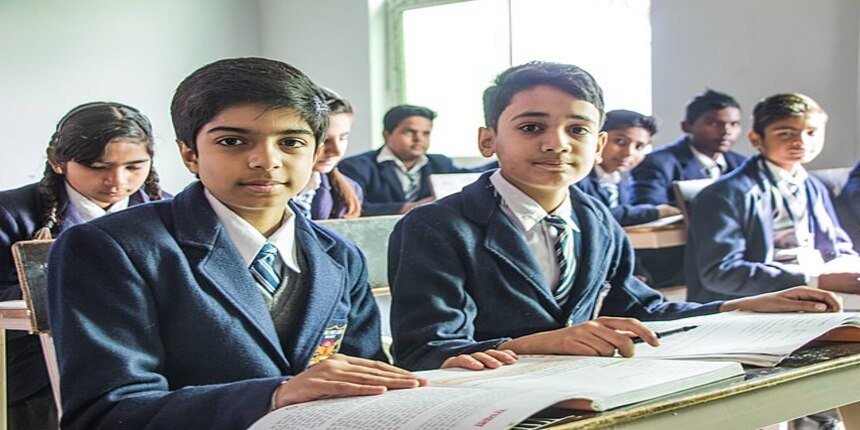NCERT launches ‘Bridge Month Programme’ for Class 6 until new textbooks are launched
Shradha Chettri | April 5, 2024 | 01:08 PM IST | 4 mins read
NCERT rules for the one-month course define curriculum, assessment for Class 6; vocational, art, physical education and well-being classes mandatory

NEW DELHI: With the new National Curriculum Framework (NCF) being introduced for Class 6, the National Council for Educational Training and Research (NCERT) has now made it mandatory for schools to allot classes for vocational education, art education, and physical education and well-being. While the textbooks are yet to be launched, the NCERT has issued a Bridge Month Programme (BMP) for Class 6 defining the teaching pedagogy, curriculum and assessment.
By the end of the month, NCERT books for Classes 3 and 6 will be introduced, the council said. “Subsequently, in the years 2025-2026 and 2026-2027, new syllabi and textbooks for the remaining grades will be introduced,” said the NCERT guidelines.
The NCERT states, “Student’s transition from Grade 2 to 3 and from Grade 5 to Grade 6 must be smooth. The prerequisite for learning in the new curriculum is to be fulfilled, otherwise, students will suffer from a load of non-comprehension.”
On why it is being called the bridge month, the NCERT said, “The purpose would be to develop an interactive and playful classroom to set the atmosphere and prepare both teachers and students for the new syllabus and new approach to learning. Subjects are to be seen as interconnected.
“It is necessary that they get exposure to learning in a manner that they can enjoy the process of learning, they learn while playing, they learn by talking to their peers, and they learn by observing the things around them for at least one month — which may be called a Bridge Month. This month, all the subjects are to be taught in a fun-based manner”.
NCERT Class 6 curriculum
As per the National Curriculum Framework for School Education 2023 (NCF-SE 2023), the middle stage expands to include science – the study of the physical and natural world, Social Science – the study of the human world, and students also get exposure to vocational education.
Now Class 6 students will study Hindi, English, Sanskrit, Urdu, Social Science, Science, Mathematics, Vocational Education, Art Education and Physical Education & Well Being. The BMP has also been released for these subjects.
For Class 6, a new time allocation and timetable will be implemented. Now art education, physical education will have 100 hours in each academic year and vocational education will have 110 hours.
Sudha Acharya, principal of ITL Public School, Dwarka, said, “This BMP is some sort of stop gap arrangement till the new NCERT textbooks are provided. We were already having these classes but from now on it will be compulsory for all schools.”
Also read Jammu and Kashmir: New reservation policy leaves 69% youth in fray for 36% college seats, job posts
NCERT rules: Subject-wise pedagogy
For teaching Class 6 maths, the guidelines suggest using magic tricks, puzzles, games. For vocational education, it suggests project-based learning that can be done with minimal equipment such as planting flowers, either outside or in pots, or both.
For art class it suggests introducing students to the different art forms and their basic techniques and vocabulary, for example, movements with song and dance to a popular song of the region.
Physical education activities include Andingoka of Meghalaya, Yubi lakpi of Manipur – catching, throwing, running, strength, speed and coordination, Thengal Dor/ Three-Legged Race, Gadha Maar/Marham Patti among others.
In vocational education, pedagogical strategies must ensure students’ work of hands as much as possible.
“Incorporate experiential learning activities, such as internships, field trips to workplaces or simulations of work environments. Students should develop a portfolio of the activities in which they participated. It will allow them to showcase their skills, talents, and capabilities through tangible examples of their work,” the guidelines added.
NCERT Class 6 assessment
The NCERT guidelines say assessments can become more formal and explicit at this stage.
“The focus of assessments should be on the specific ways of reasoning within each form of understanding and not primarily on the recall of facts. Formal tests and examinations play a role with the expectation that students can process larger chunks of information together for analysis and synthesis. Periodic summative assessments supplement the more frequent formative assessments,” the guidelines state.
In physical education, assessment for BMP has to be done only through observation. For this, teachers should create a rubric based on learning outcomes.
“A special event can also be organised where students play games and teachers observe and mark their performance and maintain record,” stated the guidelines.
For vocational education, assessment must focus on the process of ‘doing’ as opposed to assessment of the end product.
In other subjects, the assessment needs to be continuous. For social science, the NCERT guidelines suggest giving students the scope of exploring globe and wall maps (political) and identify and locate continents and oceans.
It suggests holding mock parliament (based on activities at gram panchayat) and familiarising students with the various responsibilities of a gram panchayat or municipality.
Follow us for the latest education news on colleges and universities, admission, courses, exams, research, education policies, study abroad and more..
To get in touch, write to us at news@careers360.com.